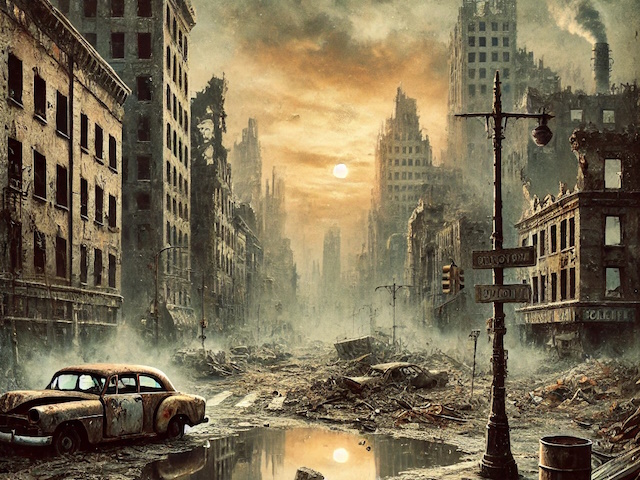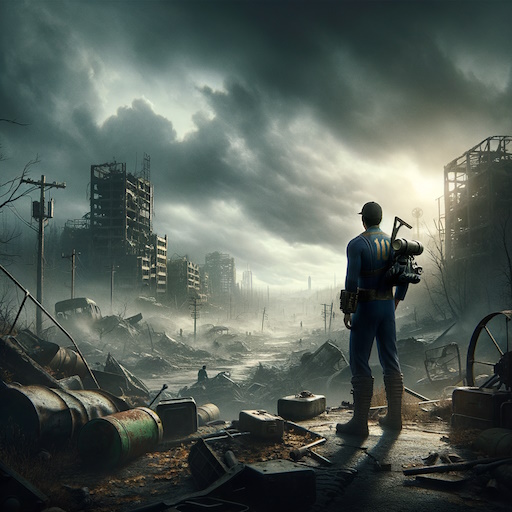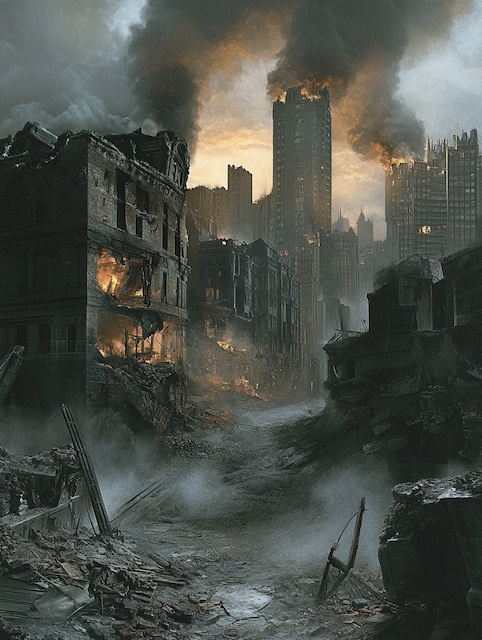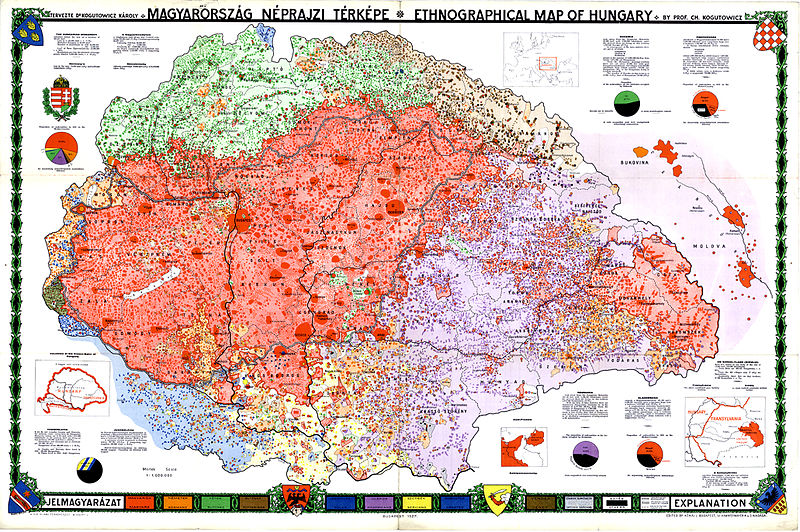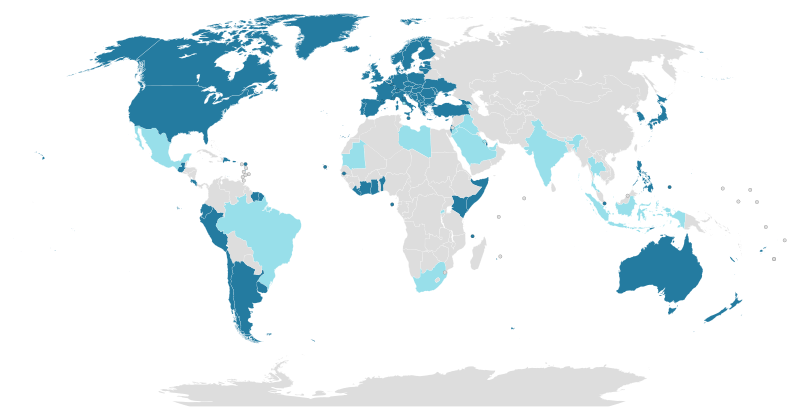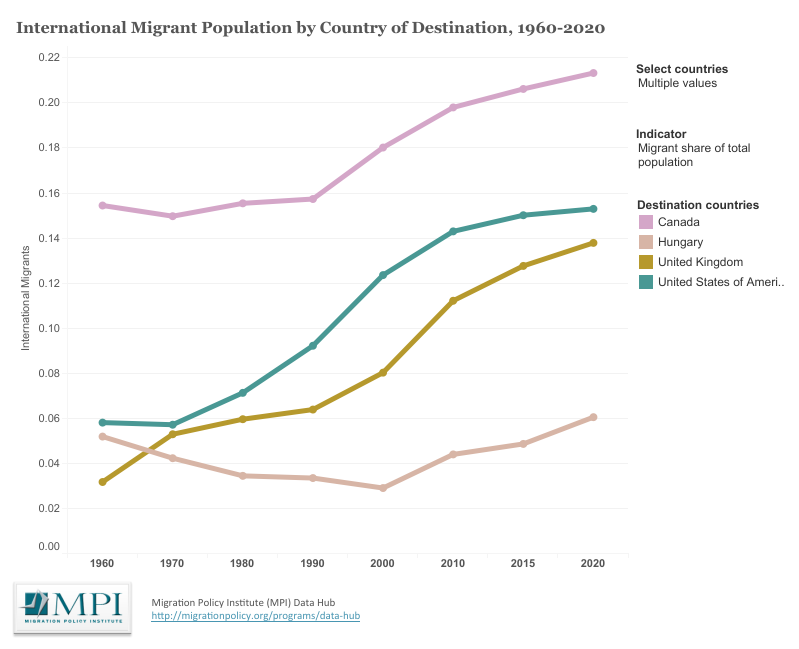In the days following Tuesday’s historic US elections, I’ve seen many reactions by liberals: friends, acquaintences, public figures like journalists.
With few exceptions, almost all of them appear to have jumped to the wrong conclusions. “Putin won this election,” they said. “Harris should have focused on immigration,” they told us. “We underestimated the stupidity,” they complained. “They’re all Nazis,” I’m told.
Nope. Trump voters are not stupid. It was not Russian propaganda that decided the outcome. You won’t shame them into voting Democrat by comparing them to the Nazis. Nor did the result have anything to do with any specific tactical decisions by the Democratic campaign.
This election—which may have tragic, historic consequences concerning the stability and viability of the Western world order that dominated the planet and ushered in an unprecedented period of relative peace and prosperity in the wake of 1945—was decided by factors that were known to Aristotle more than 2500 years ago.

Portrait of Aristoteles. Copy of the Imperial era (1st or 2nd century) of a lost bronze sculpture made by Lysippos
“Now in all states there are three elements: one class is very rich, another very poor, and a third in a mean,” he writes in Politics*. “It is admitted that moderation and the mean are best,” he continues, warning us that when the very rich and the very poor dominate over the mean, “thus arises a city, not of freemen, but of masters and slaves, the one despising, the other envying“. This leads him to his key conclusion: “But a city ought to be composed, as far as possible, of equals and similars; and these are generally the middle classes. Wherefore the city which is composed of middle-class citizens is necessarily best governed; they are, as we say, the natural elements of a state. And this is the class of citizens which is most secure in a state, for they do not, like the poor, covet their neighbours’ goods; nor do others covet theirs, as the poor covet the goods of the rich.”
And look at our world in 2024. Throughout the Western hemisphere, the middle class is in retreat. Despite the rise in GDP, incomes remain stagnant, barely keeping up with inflation, if that. Housing prices are skyrocketing, making home ownership an unattainable dream for much of the younger generation; even renting a decent home is beyond the reach of many. The wage and income gaps are both on the rise, even as the streets fill up with the homeless, public infrastructure is often crumbling, healthcare systems are under stress and often near the breaking point, even public transportation fails to deliver far too often.
Now you might think that these issues should be top priority for political forces that occupy the left of the political palette. After all, traditionally it’s those on the left who championed these causes, worked in favor of a strong middle class. Not anymore. Even when the left’s agenda is not saturated by woke virtue signaling about pronouns, DEI education, divisive identity politics and other forms of self-serving activism, they failed to address the very concerns that drove far too many voters to vote for Trump. They also missed the elephant in the room: The issues are not specific to the United States. The rise of authoritarians like Orban of Hungary, the success of Brexit, the election of right-wing leaders elsewhere in Europe, the rise of the far-right in Germany are all pointing in the same direction.
Calling Trump voters stupid, racist, fascists is not helpful. Perhaps there were stupid, racist fascists voting for Trump, but the vast majority who voted for him were none of the above. They were concerned citizens, deeply disappointed with the lack of solutions coming from the left. Perhaps they underestimated the dangers represented by a Trump who openly indicated his willingness to weaken democratic institutions, who openly declared the institutions of the American Republic the enemy. Time will tell.
However, the left had a clear path ahead: forget identity politics, virtue signaling, cancel culture, and other forms of radical activism, intolerance in the name of tolerance, illiberal means to enforce the made-up standards of woke liberalism. Focus instead on the issues that matter, promoting real solutions to the problems plaguing the middle class. Because if you don’t, someone else will… or at least they will pretend to do so. And that’s exactly what right-wing populists do.
Perhaps folks on the left should spend a tad more time reading Aristotle.
In case Aristotle is not enough, here’s my collection of posts on Trump 2.0. I collect them here so that I can easily direct folks to this post rather than explain all over again what I think. Anyhow, I still recommend Aristotle over my own pearls of wisdom.
- Oct 6, 2024: “Crazy times” – I explore two imaginary nightmare scenarios about Trump striking and unholy alliance with Putin, and Trump ousted by Vance.
- Oct 6, 2024: “To my American friends” – Expression of concern about how Trumpian populists plan to act outside the constraints of democratic institutions.
- Oct 11, 2024: “More crazy times” – I discuss a scenario that thankfully didn’t happen, about a contested election with competing inaugurations.
- Oct 24, 2024: “How I learned to stop worrying and love Trump…” – Alluding to the subtitle of Dr. Strangelove, I present a cynical view of things to come.
- Oct 28, 2024: “Yes, it’s the economy, stupid” – Gains in GDP and productivity mean nothing if life for the middle class remains stagnant.
- Oct 30, 2024: “Tomorrow belongs to me…” – My reaction to a heartfelt note by a young Trump supporter.
- Nov 6, 2024: “Bark vs. bite” – So this is how liberty dies. And yes, many in 1933 thought, too, that the bark of Germany’s new chancellor is worse than his bite. Well… it wasn’t.
And now that we’re done with this political nonsense, let me go back and do useful things.
